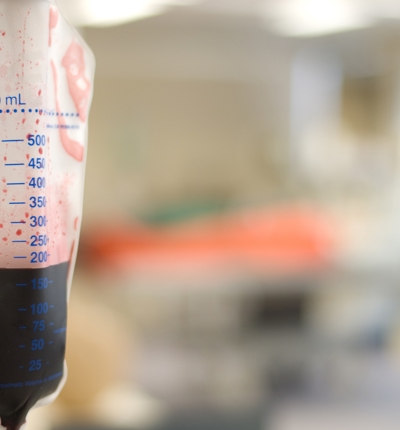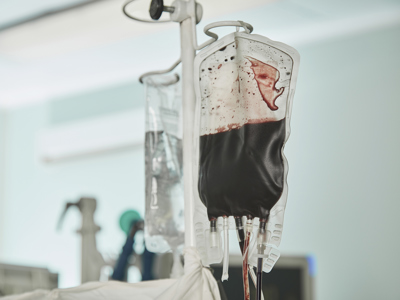
Lawyers representing families affected by the infected blood scandal welcome interim compensation payments
Lawyers representing families of those infected by contaminated blood have cautiously welcomed the government’s announcement that the estates of people who died as a result of the Infected Blood Scandal can now apply to receive an interim payment of £100,000.
Posted on 24 October 2024
These families have been fighting for years for compensation in recognition of the effect of the contaminated blood scandal on their loved ones and their wider family.
Those that can apply for the interim payment include partners, parents, siblings and children who are appointed representatives of the deceased person’s estate.
Leigh Day represents more than 300 people impacted by the contaminated blood scandal, including those who had blood transfusions in the 1970s, 1980s and early 1990s and became infected with diseases including HIV and Hepatitis C. Many more people have contacted them since the publication of the Infected Blood Inquiry’s final report published on 20 May 2024.
A statement released by the government stated that opening up the interim payments to this group fulfils the commitment placed on government by the Victims and Prisoners Act 2024 and helps deliver on Recommendation 12 of the Infected Blood Inquiry’s Second Interim Report, which recommended that “an interim payment of £100,000 should be paid to recognise the deaths of people who, to date, hadn’t been recognised.”
The interim payments will be followed by a comprehensive compensation scheme which the government has said will begin payments by the end of this year. With some Regulations yet to be published, full compensation for all of the infected and affected individuals is unlikely to be paid until 2026-27.
Leigh Day partner Gene Matthews, who represents clients infected and affected by the scandal, said:
“After many years of being ignored and sidelined, our clients cautiously welcome the government’s announcement that applications will open shortly to widen the £100,000 interim payment to estates of people who died as a result of the infected blood scandal.
“The interim payment was first paid in October 2022 to selected individuals and estates, leaving many parents and children of those infected by contaminated blood without any form of recognition and financial redress for the harm their loved ones have suffered.
“It is imperative that the government makes this process as swift and easy to access as possible. There remain a number of probate related hurdles to overcome and those families will require legal assistance to navigate these. Our clients are calling for that legal assistance now to ensure the government meets its commitment to provide full and meaningful compensation for the significant harm caused to so many families lives.”
Roxanne Longson, whose mother Carol Bradley died as a result of hepatitis C contracted after an infusion with contaminated blood in 1982-3, said:
“I just don’t think the government have told us enough or are doing enough. We’re in a situation where we have paperwork to arrange probate but we can’t send it off because we don’t have any information about IHT. I don’t feel like we’re getting anywhere."
Another Leigh Day client, whose grandmother was a victim of the infected blood scandal and has since died, said:
"It’s great that there’s compensation available after such a long time with no progress, I do feel like there’s progress but there’s still a lot of unknowns without timelines. I am keen to understand when happening, we’re getting close to full compensation but we’re not quite there yet.”

Gene Matthews
Gene specialises in consumer law, product liability and data protection claims mainly brought as group claims/ multi-party actions

Infected Blood Inquiry
The final report of the Infected Blood Inquiry is due on 20 May 2024. Leigh Day's infected blood team represents more than 300 people impacted by the contaminated blood scandal.

Infected blood compensation claims
We're investigating claims on behalf of blood transfusion NHS patients who were infected with Hepatitis C

